
15 minute read
He’s No Cowboy
New litigation counsel brings sense of humor, years of legal experience to AAC.
Story and Photo by Christy L. Smith AAC Communications Director
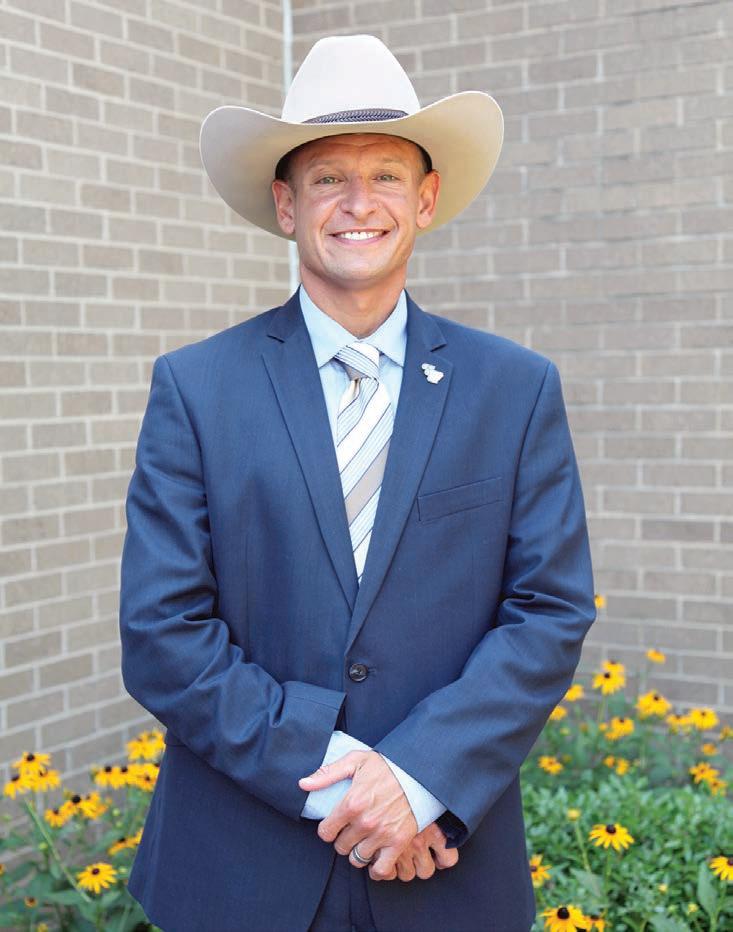
Colin Jorgensen joined the AAC staff as litigation counsel in June. He brings years of experience as an attorney in the Arkansas Attorney General’s civil litigation department.
First things first: Let’s address the cowboy hat. After all, it is an attention grabber. However, it’s no indication that AAC’s new litigation counsel, Colin Jorgensen, is a cowboy, either literally or figuratively. He’s very much a city boy — and a man who follows the letter of the law.
“It was a gift from my wife,” Jorgensen said when asked about the hat.
He and his wife of eight years, Eve, were fans of the television series “Justified.”
“There was a character named Raylin Givens who was a U.S. Marshal in that show,” Jorgensen said. “He always wore a Stetson hat, which looks remarkably like the one I have. I always commented on it jokingly because I am not a cowboy or a U.S. Marshal.”
Yet, Jorgensen said, his wife bought him the hat for his birthday last year.
“It’s pretty awesome. I like it, and so I wear it,” Jorgensen said. “I do have a pair of boots, also a gift from my wife. I don’t have a gun or a horse or a badge or anything else. It’s just a fun prop.”
And his response to questions about the hat is a good indicator of the sense of humor Jorgensen brought with him to the AAC when he joined the staff on June 12, 2017.
“It’s OK to tell jokes,” Jorgensen said of the AAC office. “Thank goodness because I would not fit in otherwise.”
Jorgensen was born in Texas and lived in Missouri for a short time. His parents — his father is an engineer, and his mother is a registered nurse — moved to Little Rock when Jorgensen was 7. He graduated from Little Rock Central High School before attending the University of Oklahoma at Norman, where he earned degrees in political science and philosophy.
He says he never considered becoming a lawyer until, as a college student, he realized his liberal arts degrees were “not conducive to finding gainful employment.” So he went to the University of Michigan to earn a law degree.
Jorgensen’s first job out of college was as an associate at Wright Lindsey Jennings in Little Rock. After two years he took a job in the civil litigation department of the Arkansas Attorney General’s office. Over the course of 10 years, he

rose from assistant attorney general to senior assistant attorney general.
Then AAC Executive Director Chris Villines convinced Jorgensen to make a move to county government.
“To have brought someone with Colin’s experience into the county government fold is a huge victory,” Villines said. “He has a depth of legal experience that is extremely valuable, and he matches that with a personality that is warm and welcoming — the counties of Arkansas all just got better because he has joined our team.”
As litigation counsel for the AAC, Jorgensen said he is “working on defending counties and county officials in state and federal court in civil lawsuits.”
“I’m doing other things, too,” Jorgensen said, noting that he has been working on research projects, attending continuing education conferences to meet county officials and updating the AAC personnel policy. Like other attorneys in the office, he focuses his time on “whatever the issue of the day may be.”
Jorgensen said in his short time at the AAC he has noticed “we have many, many deep and meaningful longstanding relationships with all sorts of county officials and entities, and a lot of what we do is driven by that.
“There’s a lot of personal relationships between and among the people outside this office and the people inside this office, and that is important,” he said. The county officials he’s had an opportunity to speak to “clearly very much value and trust our opinion, our assistance and knowledge.
“I want to get up to speed quickly so I can contribute to that,” he said.
Jorgensen and his wife have two children — Hank, 6, and Suzy, 3. He enjoys exercising, reading and playing fantasy baseball, but candle making is Jorgensen’s primary hobby. He has a shop where he makes 4-inch candles to give away as gifts or to donate to charity auctions. He also coaches his son’s baseball team.
“Mostly I do family at this point,” Jorgensen said. “Kids pretty much take the vast majority of my spare time.”
More about Colin Jorgensen
Family information: My wife Eve Gieringer Jorgensen and I married on Valentine’s Day 2009. We have two children: Hank, 6 going on 7, and Suzy, 3 going on 13 or 30 depending on the day. They are everything to us. Eve and I both are from Little Rock, and our parents live in town, so we all get lots of quality time with Hank and Suzy’s grandparents, and we are fortunate to have a wonderful village.
My favorite meal: Nachos. I’ve perfected them.
When I’m not working I’m: Spending time with family, mentoring, making candles, following news and baseball, exercising and spending more time with family.
The accomplishment of which I am most proud: Glory days accomplishments include winning the 3-point shootout when I was a sophomore and being the captain of the state champion debate team as a senior at Little Rock Central High School. Professional accomplishments include handling many high-profile state constitutional challenges in trial courts and at the Arkansas Supreme Court and Eighth Circuit, including about 20 oral arguments. Personal accomplishments include a happy marriage, countless friendships, over six years of (mostly) successful parenting, mentoring many wonderful folks, and volunteering with Big Brothers Big Sisters, the Wolfe Street Foundation and Arkansas JLAP.
The hardest thing I have ever done: Change. Every time — so hard. But it’s necessary and good (every time, so far).
At the top of my bucket list is to: Live each day well. My wife is an expert at planning the future, including adventure, so I defer to her for more traditional bucket list items.
You might be surprised to learn that: I was on the Today Show in the summer of 1999. I was studying abroad in Puebla, Mexico, during a 6.7 magnitude earthquake. In the chaotic streets after the tremor, I saw a cameraman and reporter — I hollered “Are you looking for someone who speaks English?” I promptly had a microphone in my face and friends back home say I had my 15 seconds of national fame, but I never saw it.
My pet peeve is: I sometimes argue with myself, but I’ve gotten better about it, and I continue to work on it. My wife is the only person who catches me midargument, so it’s not a big problem, but it does make me feel peevish.
Motto or favorite quote: I strive for integrity and gratitude in all of my affairs. I’m fond of the Serenity Prayer and the Prayer of St. Francis. I have many favorite quotes — my first favorite was from Aristotle: “No one would choose a friendless existence on condition of having all the other good things in the world.”
AAC names 2017 scholarship recipients

Biology, engineering and business are among their fields of study
The Association of Arkansas Counties recently announced its 2017 AAC Scholarship Trust recipients. AAC established the trust in 1985 to provide college financial assistance to the children, stepchildren and grandchildren of Arkansas county and district officials and employees. AAC has since awarded more than $185,000 in scholarships.
Along with AAC, the following county associations contribute to the scholarship trust annually: The County Judges Association of Arkansas, the Arkansas County Clerks Association, the Arkansas Circuit Clerks Association, the County Collectors Association of Arkansas, the Arkansas County Treasurers Association, the Assessors Association of Arkansas, the Arkansas Association of Quorum Courts and the Arkansas Sheriffs’ Association.
• Noah Worley – Noah is a 2017 graduate of Harmony Grove High School in Camden. He is the grandson of retired Bradley County Circuit Clerk Cathy Richardson. He will attend Ouachita Baptist University in Arkadelphia where he plans to study biology.
• Logan Ingram – Logan is a 2017 graduate of Pocahontas High School and is the son of Randolph County Assessor Stacy Ingram.
He will attend Missouri University of Science and Technology where he will study geological engineering.
• Meagan Renee Davidian – Meagan is the daughter of Waynette Davidian, who works in the Washington County collector’s office. This is the second year she has been awarded an AAC scholarship. She will continue her studies in biomedical engineering at the University of Arkansas.
• Baylee Phillips – The daughter of Jackson County Judge Jeff Phillips and a 2017 graduate of Newport High School. She will attend Arkansas State University at Jonesboro where she will study medical technology.
• Reid Chandler Eakin – Reid, a 2017 graduate of Wynne High School, is the son of Mary Beth Eakin, who works in the Cross County clerk’s office. He will study chemical engineering at the University of Arkansas.
• Jacklynn Minton – Jacklynn is a 2017 graduate of Mena High School. She is the daughter of Tammie Minton, an employee in the Polk County sheriff’s office. Jacklynn plans to attend Ouachita Baptist Univeristy and seek a degree in business management.
• Matt Baker – Matt is a 2017 graduate of Centerpoint High School. He is the son of Pike County Justice of the Peace Paul Baker and the

Logan Ingram Baylee Phillips Jacklynn Minton

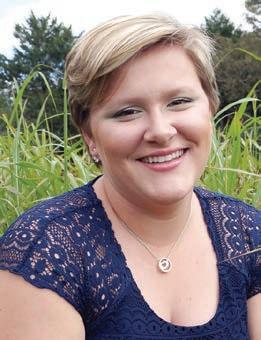

Noah Worley Meagan Renee Davidian Reid Chandler Eakin Matt Baker
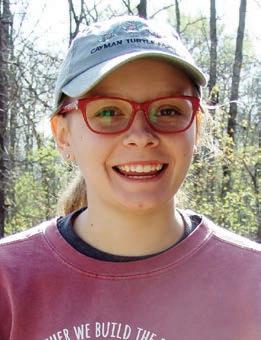

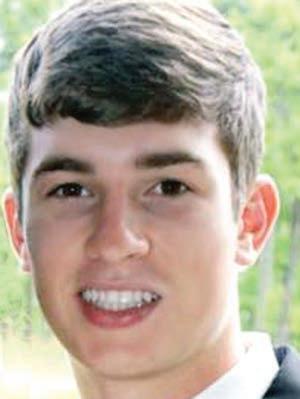
grandson of retired County Judge Don Baker. Matt will seek a bachelor’s degree at Arkansas Tech University.
• Kaitlyn Dahlke – Kaitlyn, the granddaughter of Hot Spring County Treasurer Mary Cansler, is a junior at Henderson State University where she is working toward a bachelor’s degree in nursing. This is the fourth year Kaitlyn has received an AAC scholarship

• Cole Armer – Cole, a 2017 graduate of Green Forest High School, is the son of Nicole Armer, an employee in the Carroll County collector’s office. He plans to study wildlife conservation at Missouri State University in Springfield.
Cole, a guitar and mandolin instructor, is this year’s recipient of the Matt Morris Scholarship. The scholarship was established following the death in 1999 of Matt Morris. Matt was the son of Searcy Mayor David Morris, a former AAC employee. Matt was an Arkansas Razorback baseball recruit. The scholarship is funded by donations made in Matt’s name and by the County Judges Association. It is awarded each year to an applicant who reminds the scholarship committee of Matt, either through their sports involvement or by helping others.
• Shawna Marie Martin – Shawna is a freshman at Arkansas State University majoring in strategic communications. She is the great-granddaughter of Laurel Don Reed, who works in the Baxter County road and bridge department.
Shawna is the recipient of the Randy Kemp Memorial Scholarship. Randy was AAC communications director from 2008 until his death in August 2011. The scholarship is funded exclusively by the annual AAC golf tournament and awarded each year to an applicant who plans to study journalism or mass communications.

Kaitlyn Dahlke Cole Armer Shawna Marie Martin
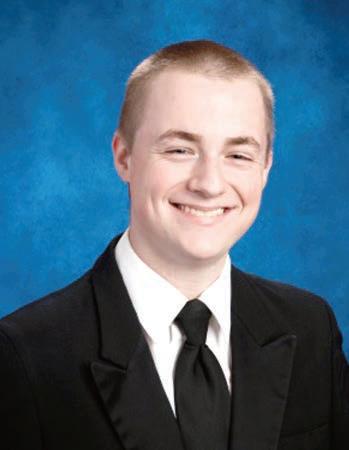

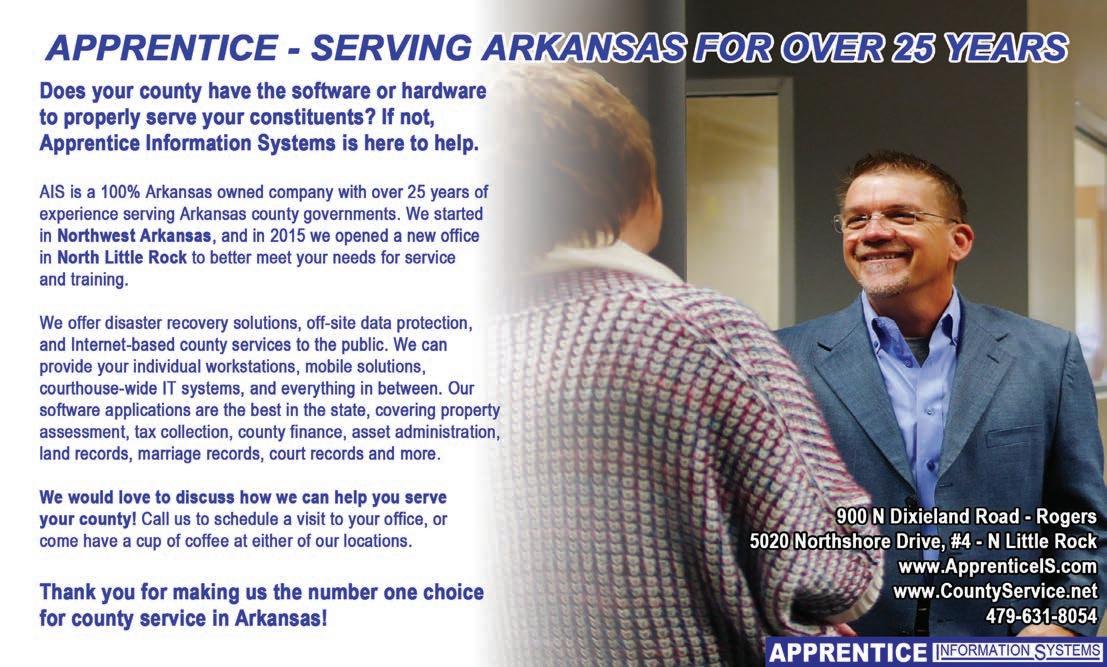

Counties left in the dark when 911 fails
County first responders to FCC, cell companies: Tell us when 911 goes out
Story by Mary Ann Barton Senior Staff Writer, National Association of Counties
The Federal Communications Commission (FCC) is investigating an AT&T 911 outage March 8 that left counties across 13 states scrambling to get the word out to residents and deal with emergencies after the company failed to notify local governments or its customers in a timely manner.
FCC Chairman Ajit Pai spoke with the company’s CEO the night of the outage and said he stressed to him the “urgent need to restore service and to communicate with first responders, as well as AT&T customers, about the status of operations.”
“I’m glad to see the FCC is looking into this issue,” said Orange County, Fla., Mayor Teresa Jacobs, who has aired her concerns in a letter to the FCC and in a conference call with the agency.
In addition to Jacobs, officials in Colorado, Minnesota, Nebraska, New York, North Carolina, Pennsylvania, Texas and Washington, D.C., have also weighed in with their concerns in letters to the FCC.
When the outage hit March 8, Orange County contacted AT&T and scrambled to get the word out to their residents, saturating the county with alternative emergency numbers via Twitter and crawls on local TV news stations.
The 911 outage not only put residents in danger, but tourists as well, Jacobs noted. Orange County’s population doubles when tourists hit the area looking for sun and fun and she notes it’s an “awesome responsibility” to protect them. “They need to know they’re arriving into a developed country,” she said.
When customers called 911 March 8, a few were helped by a backup system, but most — the FCC said 12,600 people tried to call — heard a busy signal or a ring that went unanswered across counties in California, Colorado, Florida, Maryland, New York, North Carolina, Pennsylvania, Tennessee, Texas, Virginia and Washington, D.C. and other states.
There does not appear to be a system in place to hold companies responsible for contacting local governments when an outage occurs. Jacobs and other county officials hope to see that change. “In addition to examining the actual malfunction of their system, I’d like to ask for a comprehensive review of AT&T’s failure to alert its customers and impacted public safety agencies in a timely fashion,” Jacobs wrote in her letter to the FCC. Jacobs and other Orange County, Fla. officials held a conference call last month with the FCC about the 911 outage, to discuss the impact it had on the A family in Orange County, suffering a medical emergency, set off their home alarm after nine failed attempts at calling 911. county, and walked the agency through how they only found out about the outage during an emergency and not from AT&T. A family in Orange County, suffering a medical emergency, set off their home alarm in hopes of contacting emergency responders, after nine failed attempts at calling 911, county officials said. “I’m not sure I would have had the presence of mind to set off that alarm,” Jacobs said. The home alarm company contacted the Orange County Fire Department, which triggered a visit from Orange County Fire & Rescue Engineer Matthew West and Lt. Jeff Kelly. West and Kelly contacted the county at about 6 p.m. to let them know that 911 service was down. At the same time, one of Jacobs’ sons, who recently became a firefighter, called her to tell her 911 service was down. Orange County tried to contact AT&T for more information. When they weren’t able to get in touch with the carrier, they made their own announcement and contacted the media to get the word out. Local TV stations ran the county’s message, a visual crawl that contained local emergency phone numbers to call. The March 8 outage also hit the D.C. metro area. Local government officials worked to get the word out, just like

Orange County. Public information officers in Northern Virginia’s Arlington, Fairfax, Prince William counties, and in Maryland in Prince George’s County and Montgomery County, as well as D.C. officials, took to Twitter to get word out to area residents. Residents’ options included calling 911 using another cell carrier, using a landline or dialing a local phone number.
Orange County said that AT&T finally contacted them hours after the outage started — in an email with no contact information. AT&T tweeted out a message at 9:49 p.m. ET hours after the outage had started: “Aware of issue affecting some calls to 911 for wireless customers. Working to resolve ASAP. We apologize to those affected.”
After the FCC began its investigation, AT&T and Comtech suggested that the FCC “and other interested 911 entities and/or trade associations join in pursuing a solution to the notification database management problem.” The companies say it’s problematic for them to try to contact hundreds or thousands of public safety officials.
Jacobs, in her letter to the FCC, wrote that wireless carriers should be held legally responsible for immediately notifying their customers and impacted public safety agencies. She points out that if wireless carriers can send out messages letting customers know they’re about to reach their data limit, they can notify them when 911 service is out. “They have the tools at their disposal,” she noted.
In comments filed with the FCC as a result of the outage and investigation, AT&T said:
“A best-practices approach could yield more effective notice procedures, while maintaining the flexibility that carriers and PSAPs need to address the varying circumstances that could develop in the wake of an outage.
“To further facilitate timely communications to consumers in the event of an outage, the Commission should also consider creating and maintaining a database of PSAP contacts for use by providers. A centralized, coordinated effort could provide for accurate and consistent points of contact across industry, and facilitate timely notification to consumers in the event of a 911-impacting outage.
Mary Ann Barton is a senior staff writer for County News and is returning to NACo after previously working at the association. She comes to NACo after covering local news for Patch.com in Northern Virginia.
This article originally was published April 28, 2017.




